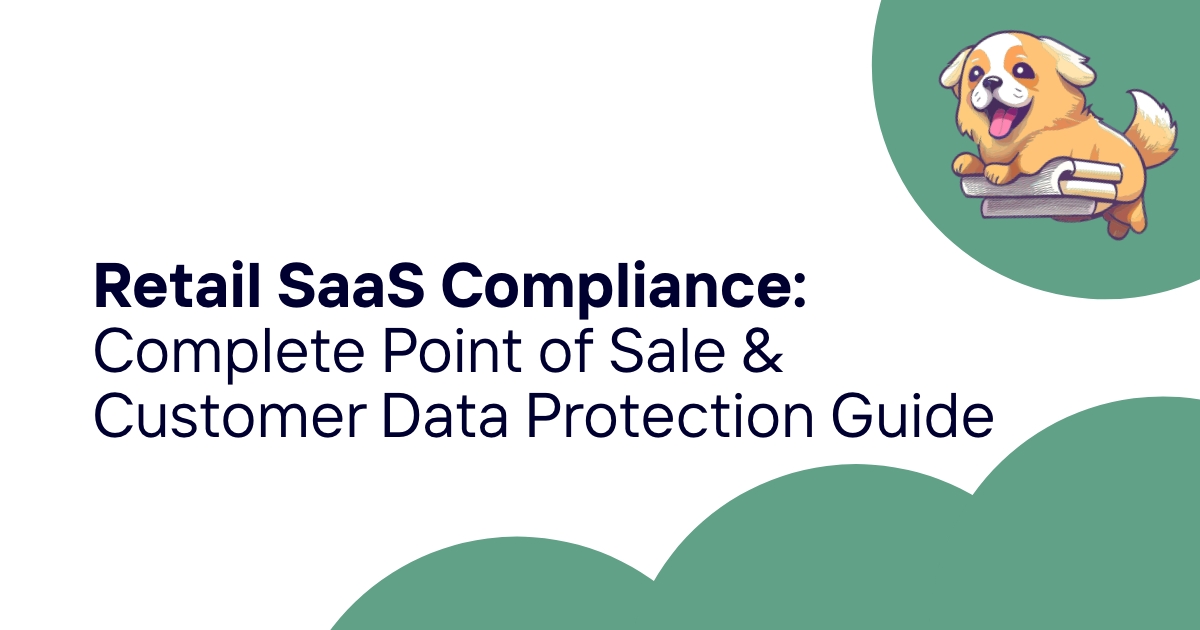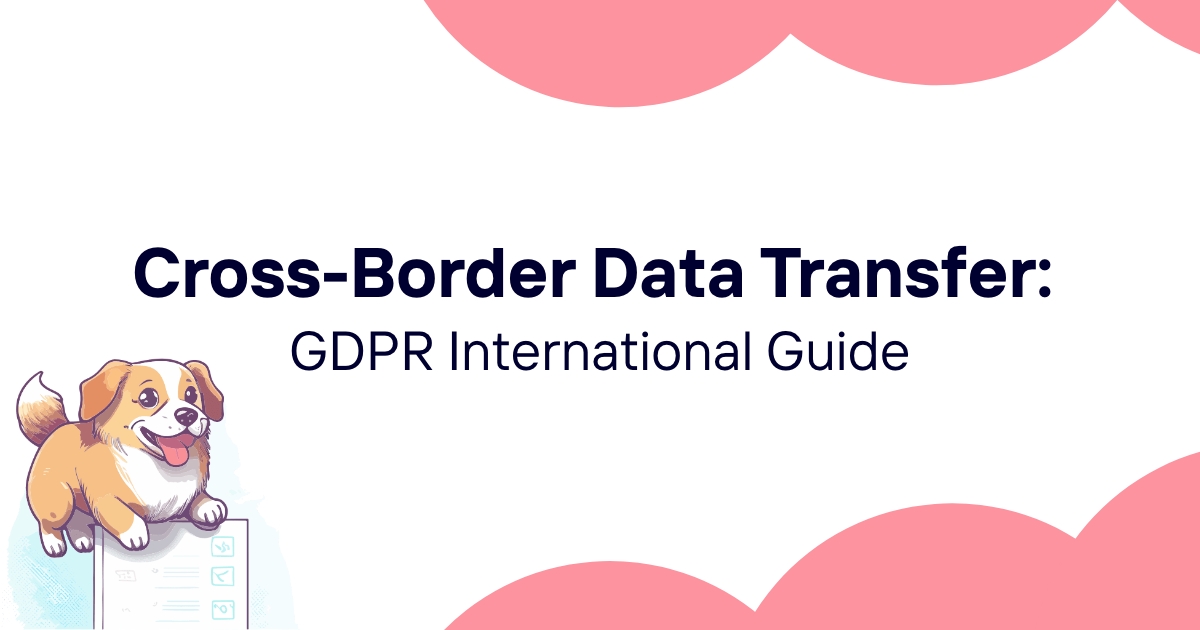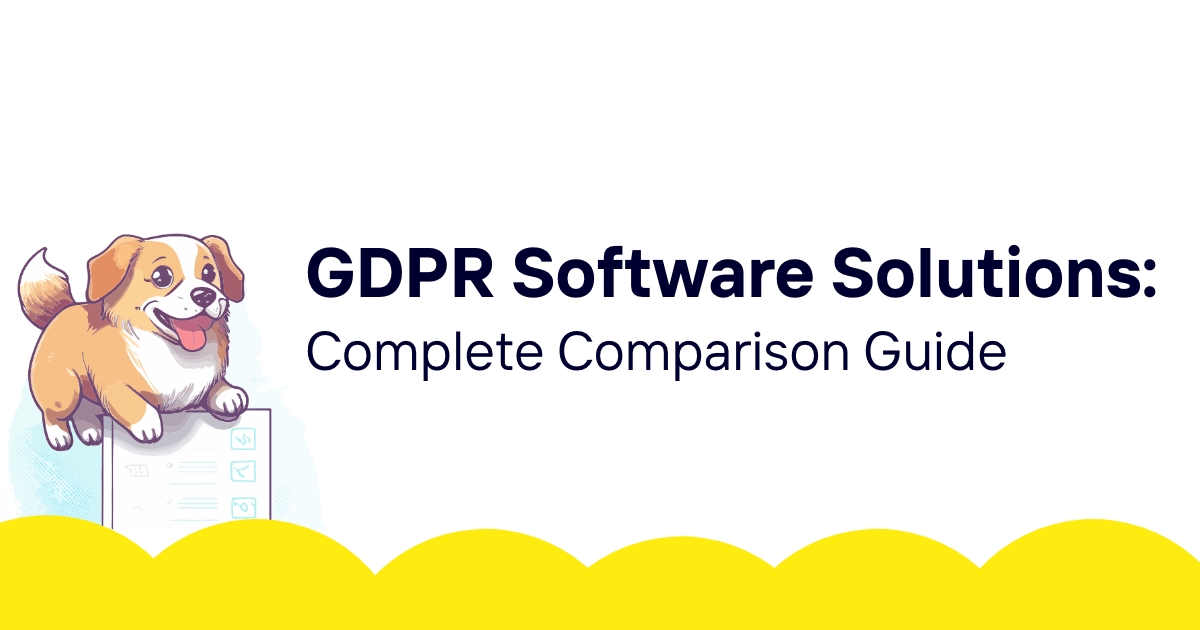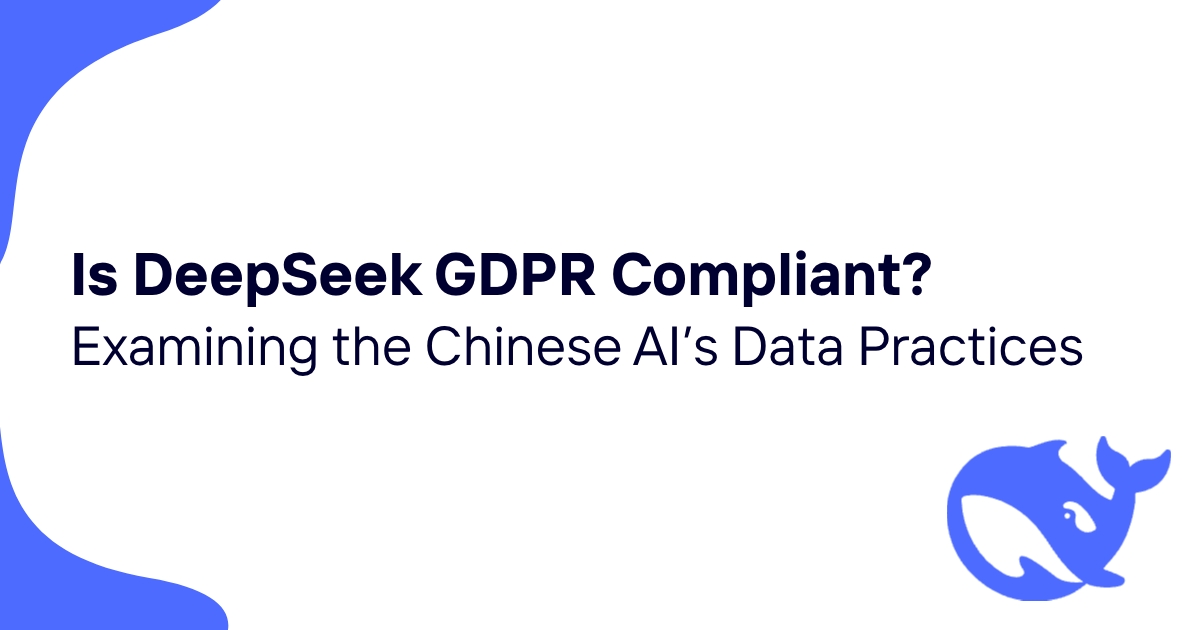Retail SaaS platforms sit at the intersection of customer privacy and business operations, processing millions of transactions that reveal intimate details about shopping behavior, preferences, and personal circumstances. Every purchase tells a story - what people buy, when they shop, how much they spend, and where they go for different needs.
The compliance stakes are particularly high in retail because customer data flows through complex ecosystems of POS systems, payment processors, loyalty programs, inventory management platforms, and analytics tools. Each integration creates potential privacy risks that can multiply across thousands of retail locations and millions of customer interactions.
Modern retail compliance goes beyond traditional payment security. Privacy laws like GDPR and CCPA give customers extensive rights over their shopping data, while industry regulations create additional obligations for retailers in healthcare, automotive, and other specialized sectors. Retail SaaS platforms must navigate this complex landscape while enabling the personalization and analytics that drive modern commerce.
Smart retail SaaS companies turn compliance into a competitive advantage by building trust with both retailers and their customers. Platforms that can demonstrate strong data protection practices win more enterprise deals and support retailers' own compliance efforts. ComplyDog helps retail SaaS platforms showcase their commitment to customer data protection through comprehensive compliance portals that build confidence with retail partners.
Retail SaaS Data Protection Requirements
Retail environments generate diverse types of personal data through multiple touchpoints, creating complex compliance scenarios that require comprehensive data protection frameworks.
Core Data Categories in Retail SaaS:
- Transaction data - Purchase history, payment methods, receipt information, refund records
- Customer identity data - Names, addresses, phone numbers, email addresses, loyalty account information
- Behavioral data - Shopping patterns, store visits, product views, cart abandonment, seasonal preferences
- Payment data - Credit card information, payment processor data, billing addresses, payment preferences
- Demographic data - Age, gender, location, income estimates, family composition derived from purchases
Each data category requires different legal basis and protection levels under privacy laws. Transaction data might rely on contract performance for order fulfillment, while behavioral analytics could require legitimate interests or consent depending on the specific use case.
Retail-Specific Privacy Challenges:
Retail environments create unique privacy compliance challenges that don't exist in purely digital businesses. In-store shopping involves physical presence, cash transactions, and face-to-face interactions that complicate data collection and consent management.
Anonymous shopping is a fundamental retail tradition that privacy laws aim to protect. Customers should be able to make purchases without providing personal information beyond what's necessary for the transaction itself. Retail SaaS platforms need to support both identified and anonymous customer interactions.
Multi-Channel Data Integration:
Modern retail operates across online, mobile, and physical channels with customers expecting seamless experiences across all touchpoints. This integration requires careful privacy compliance because data collected in one channel affects privacy obligations in others.
A customer who makes an anonymous in-store purchase but later signs up for email marketing has different privacy expectations for each interaction. Design systems that can handle varying levels of customer identification and consent across different retail channels.
Seasonal and Promotional Compliance:
Retail businesses experience significant seasonal variations and promotional campaigns that can affect data collection and processing patterns. Holiday shopping, back-to-school campaigns, and special events create temporary spikes in data processing that need compliance consideration.
Plan compliance frameworks that can scale with retail seasonal patterns while maintaining consistent privacy protection. Black Friday analytics require the same privacy safeguards as routine daily operations, even when processing volumes increase dramatically.
For insights on managing complex customer data relationships, check out our B2B manufacturing SaaS compliance guide which addresses similar multi-party data challenges.
POS System Customer Data Management
Point of sale systems process the most sensitive retail customer data, including payment information, purchase details, and identity data that requires careful privacy protection and compliance management.
Transaction-Level Privacy Protection:
Every POS transaction creates a record that might include personal data requiring privacy protection. Even seemingly anonymous cash transactions might include customer identification through loyalty programs, email receipts, or return policies.
Implement transaction processing that collects only data necessary for completing the sale and supporting legitimate business needs like returns, warranties, and customer service. Avoid collecting personal information "just in case" it might be useful later.
Payment Data Segregation:
POS systems must carefully segregate payment data that falls under PCI DSS requirements from personal data protected by privacy laws like GDPR. These frameworks have different technical requirements and compliance obligations.
Design POS architectures that minimize payment data exposure while maintaining transaction functionality. Tokenization and point-to-point encryption can reduce the scope of both PCI DSS and privacy compliance by limiting access to sensitive data.
Receipt and Communication Preferences:
Digital receipts and transaction confirmations involve collecting email addresses or phone numbers that create marketing opportunities but also privacy obligations. Customers need clear choices about receipt delivery without being forced into marketing communications.
Implement receipt systems that separate transaction notifications from marketing consent. Customers should be able to receive digital receipts without automatically opting into promotional communications or behavioral tracking.
Return and Exchange Data:
Product returns and exchanges often require additional customer data collection for fraud prevention, inventory management, and customer service purposes. This data collection must balance business needs with privacy minimization principles.
Design return processes that collect only information necessary for processing the specific return. Historical purchase data might support return processing, but comprehensive customer profiling for return prevention might exceed privacy law requirements.
Retail Customer Analytics and Privacy
Retail analytics platforms provide valuable insights into customer behavior and business performance, but detailed behavioral tracking creates significant privacy compliance challenges that require careful management.
Customer Journey Analytics:
Retail customer journey analytics track interactions across multiple touchpoints, channels, and time periods to understand shopping patterns and optimize customer experiences. This comprehensive tracking requires explicit privacy consideration.
Implement customer journey analytics that can function with different levels of data availability based on customer consent decisions. Consider privacy-preserving analytics approaches that provide business insights without detailed individual tracking.
Predictive Analytics and Automated Decisions:
Retail predictive analytics often make automated decisions about product recommendations, pricing, promotions, and inventory allocation. Under privacy laws like GDPR, automated decisions that significantly affect individuals require additional protections.
Document predictive analytics systems and provide explanations when customers request information about automated decision-making that affects their shopping experience. Consider human oversight mechanisms for high-impact automated retail decisions.
Demographic and Psychographic Profiling:
Retail analytics often infer demographic and psychographic characteristics from purchase behavior, creating detailed customer profiles that might include sensitive personal information about income, health, family status, and lifestyle choices.
Evaluate whether inferred customer characteristics constitute personal data requiring privacy protection. Shopping patterns that reveal health conditions, financial status, or other sensitive information might need enhanced privacy protections.
Location and Movement Analytics:
Retail analytics increasingly incorporate location data from mobile apps, Wi-Fi tracking, and in-store movement patterns. Location data receives special protection under privacy laws because of its sensitive nature and tracking capabilities.
Implement location analytics with appropriate consent mechanisms and clear disclosure about tracking purposes. Consider whether business objectives can be met with less precise location data or aggregated movement patterns rather than detailed individual tracking.
Inventory Management SaaS Compliance
Inventory management platforms process customer data through demand forecasting, supplier relationships, and product lifecycle management that creates privacy compliance considerations often overlooked in retail operations.
Demand Forecasting and Customer Privacy:
Inventory demand forecasting relies on customer purchase patterns and behavioral data to predict future sales. This analysis can reveal detailed insights about customer preferences and shopping habits that require privacy protection.
Design demand forecasting systems that can operate on aggregated or anonymized customer data rather than detailed individual profiles. Statistical forecasting often provides accurate results without requiring personal data processing.
Supplier and Vendor Data Management:
Inventory management involves processing personal data about supplier contacts, vendor representatives, and logistics personnel. This B2B personal data requires privacy protection even within business relationships.
Implement data minimization practices for supplier contact management that collect only information necessary for business operations. Comprehensive vendor employee directories might exceed business necessity for inventory management purposes.
Product Recall and Safety Communications:
Product recalls and safety communications might require identifying customers who purchased specific products, creating targeted communication needs that must balance safety requirements with privacy protection.
Develop recall communication systems that can identify affected customers while minimizing data exposure and respecting communication preferences. Safety communications might override some marketing opt-outs, but should still respect privacy preferences where possible.
Warranty and Service Data:
Product warranty tracking and service history often involve collecting customer contact information and product usage data that requires ongoing privacy protection throughout the product lifecycle.
Implement warranty data management with appropriate retention policies that consider the actual warranty period and business needs for service support. Avoid retaining customer data indefinitely for products with limited warranty periods.
Retail Customer Loyalty Program Privacy
Customer loyalty programs create some of the most comprehensive customer profiles in retail, combining transaction history, behavioral data, and personal preferences that require careful privacy compliance management.
Loyalty Program Consent Management:
Loyalty programs require explicit consent for detailed behavioral tracking and personalized marketing that goes beyond basic transaction processing. This consent must be specific, informed, and freely given.
Design loyalty program consent that offers meaningful choices about different program features. Customers should be able to participate in basic loyalty rewards while declining detailed behavioral analytics or third-party marketing partnerships.
Points and Rewards Data Protection:
Loyalty points and rewards represent value that customers accumulate over time, creating data retention needs that must be balanced with privacy minimization principles. Customers need access to their loyalty account information while maintaining privacy protection.
Implement loyalty data management that protects account security while respecting privacy rights. Customers should be able to access their points balance and reward history, but detailed behavioral analytics might require separate consent.
Third-Party Loyalty Partnerships:
Many retail loyalty programs involve partnerships with other retailers, credit card companies, or service providers that create complex data sharing arrangements requiring privacy compliance coordination.
Document loyalty partnership data sharing arrangements and ensure appropriate legal basis exists for each type of data sharing. Customers should understand which partners have access to their loyalty data and for what purposes.
Loyalty Program Termination:
When customers close loyalty accounts or retailers terminate loyalty programs, personal data accumulated over years of participation must be handled according to privacy law requirements for data deletion and retention.
Develop loyalty program termination procedures that respect customer deletion rights while considering legitimate business needs for fraud prevention, tax compliance, and dispute resolution.
Multi-Location Retail SaaS Data Transfers
Retail chains and franchises create complex data transfer scenarios where customer data flows between multiple locations, jurisdictions, and business entities that require careful privacy compliance planning.
Franchise Data Sharing:
Franchise retail operations often involve data sharing between corporate headquarters, individual franchise locations, and shared service providers. These arrangements create complex privacy compliance scenarios that must respect individual franchise autonomy while supporting brand consistency.
Document franchise data sharing arrangements and ensure appropriate legal basis exists for each type of data sharing. Franchise agreements should address privacy responsibilities and data protection obligations for all parties.
Cross-Border Retail Operations:
International retail operations involve data transfers between countries with different privacy requirements. Customer data might flow between retail locations, distribution centers, and corporate offices across multiple jurisdictions.
Implement appropriate transfer mechanisms for international retail data flows, including standard contractual clauses, adequacy decisions, or binding corporate rules depending on the countries involved. Consider data localization requirements that might restrict certain types of retail data transfers.
Centralized vs Distributed Data Management:
Retail chains must balance the efficiency of centralized data management with the privacy and autonomy needs of individual locations. Some customer data might be managed centrally, while other information remains at the local level.
Design retail data architectures that can support both centralized and distributed privacy compliance depending on local requirements and business needs. Local privacy laws might require keeping certain customer data within specific jurisdictions.
Regional Compliance Variations:
Different retail locations might operate under different privacy requirements based on local laws, industry regulations, or customer expectations. Retail SaaS platforms need flexibility to accommodate these variations.
Implement compliance management systems that can handle regional variations in privacy requirements while maintaining consistent data protection standards across all retail locations.
Retail SaaS Vendor Compliance Framework
Retail organizations require comprehensive vendor compliance frameworks that address both privacy protection and operational requirements for the complex technology ecosystems that support modern retail operations.
Retail Technology Stack Compliance:
Modern retail operations depend on integrated technology stacks that include POS systems, payment processors, inventory management, customer analytics, marketing platforms, and e-commerce systems. Each integration creates potential compliance risks.
Develop vendor assessment frameworks that address the specific compliance needs of retail technology integrations. Consider how data flows between different systems and ensure appropriate privacy protections apply throughout the retail technology ecosystem.
Payment Processor Integration:
Retail payment processing involves multiple vendors including payment processors, card networks, and financial institutions. These relationships create complex compliance obligations that combine PCI DSS requirements with privacy law protections.
Document payment ecosystem relationships and ensure appropriate agreements address both payment security and privacy protection. Payment processor agreements should clearly define responsibility for different types of compliance obligations.
Third-Party Service Provider Management:
Retail operations often involve third-party service providers for logistics, customer service, marketing, and analytics that process customer data on behalf of retailers. These relationships require careful vendor management and compliance oversight.
Implement vendor management programs that address ongoing compliance monitoring rather than just initial assessments. Vendor security incidents, policy changes, and certification lapses can affect retail compliance posture.
Compliance Reporting and Transparency:
Retail customers increasingly expect transparency about vendor data protection practices and compliance status. Provide regular compliance reporting that demonstrates ongoing commitment to customer data protection.
Consider compliance dashboards that give retail customers visibility into vendor compliance status, security metrics, and privacy protection practices. Transparency builds trust and reduces the administrative burden of compliance questionnaires.
Ready to build trust with retail customers? Use ComplyDog and demonstrate your commitment to customer data protection with a comprehensive compliance portal that addresses retail-specific privacy requirements and builds confidence in your retail SaaS platform.


















